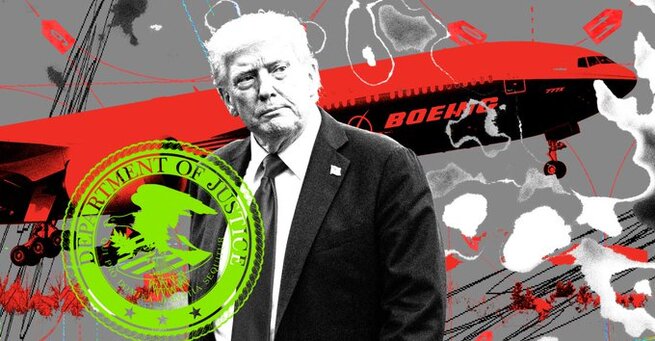
Trump Boeing 737 MAX Crashes: What Really Happened?
The tragic crashes of Lion Air Flight 610 and Ethiopian Airlines Flight 302 exposed a serious flaw in Boeing’s 737 MAX aircraft, killing 346 people and sparking global outrage. The blame largely fell on Boeing’s MCAS software, but years later, it's Donald Trump’s administration that critics say helped the company avoid true accountability. The focus keyword Trump Boeing 737 MAX crashes encapsulates the core of the controversy—why did Boeing walk away with a plea deal instead of facing a full criminal trial? This post unpacks how Boeing navigated legal troubles and the Trump administration’s role in a deal that left victims' families demanding justice.
Why Boeing Faced Federal Charges Over 737 MAX Failures
After intense investigations, the U.S. Department of Justice charged Boeing in 2021 with conspiracy to defraud the government. The case focused on how Boeing misled regulators about the MCAS system, a critical flaw that led to both fatal crashes. The company ultimately agreed to a $2.5 billion settlement in 2024, which included compensation to victims’ families and oversight from an independent safety monitor. However, the original plea bargain raised eyebrows. Critics argue it was designed to protect Boeing’s bottom line rather than pursue meaningful justice, a decision shaped by a deregulatory environment fostered during the Trump years.
How the Trump Administration Influenced Boeing’s Legal Outcome
During Trump’s presidency, federal regulatory power over aviation safety weakened significantly. In 2005, even before Trump, Congress rolled back oversight protections. But the Trump era accelerated deregulation, including reducing FAA authority and favoring industry self-regulation. When the 737 MAX scandal emerged, the administration leaned toward shielding Boeing from harsh consequences, citing national economic interests and jobs. The DOJ’s original 2021 deferred prosecution agreement bore signs of political influence—Boeing avoided criminal conviction despite strong evidence. This left many asking: was corporate accountability sacrificed to preserve Boeing’s market position?
Can Boeing Be Trusted to Self-Regulate Going Forward?
Boeing’s deal may have spared it from criminal court, but public confidence is far from restored. A federal judge scrapped the original agreement in late 2024, allowing the case to proceed toward trial in mid-2025. Yet many aviation experts warn that systemic issues remain unresolved. With minimal regulatory enforcement and a history of internal cover-ups, Boeing’s promises of reform ring hollow to families of crash victims and safety advocates. The renewed spotlight on Trump Boeing 737 MAX crashes isn't just about past failures—it’s a cautionary tale about what happens when oversight is traded for corporate interests.
𝗦𝗲𝗺𝗮𝘀𝗼𝗰𝗶𝗮𝗹 𝗶𝘀 𝘄𝗵𝗲𝗿𝗲 𝗿𝗲𝗮𝗹 𝗽𝗲𝗼𝗽𝗹𝗲 𝗰𝗼𝗻𝗻𝗲𝗰𝘁, 𝗴𝗿𝗼𝘄, 𝗮𝗻𝗱 𝗯𝗲𝗹𝗼𝗻𝗴. We’re more than just a social platform — from jobs and blogs to events and daily chats, we bring people and ideas together in one simple, meaningful space.